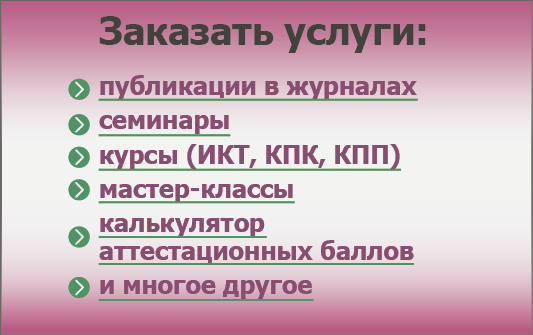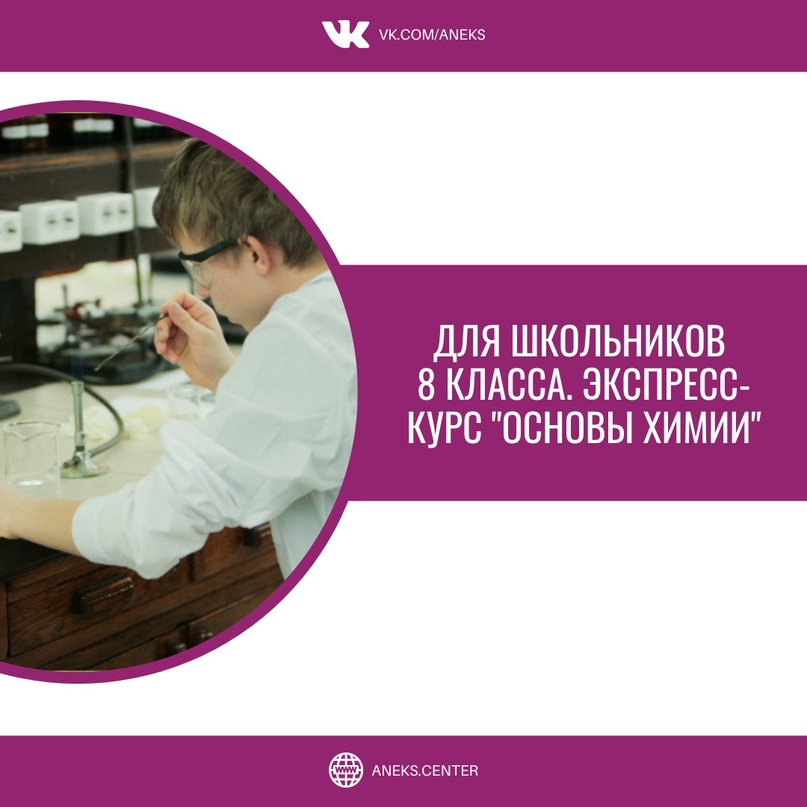Love Yourself. Социально-значимое исследование
Баженова Вероника Анатольевна
- TOPICALITY
Now we can safely say that BTS is a global phenomenon. They attract people not only with their music, talent, beauty or something else but also with their message - “Love Yourself”. We are taught to love our neighbours and to wait for someone who will love us but we forget about ourselves in the pursuit of our “soulmate”. We acquire mental disorders trying to conform to society’s expectations, trying to be perfect for someone but not real. What if we are taught to love ourselves? Self-love is not a synonym of selfishness; it is the way to confidence, harmony and happiness being with yourself.
- PROBLEM
In the 21st century we have more opportunities to express ourselves than our ancestors had but we are afraid of the future; we always ask ourselves questions like “What if I fail?”, “It isn’t a waste of time, is it?”, “What do people think and say about me?”, compare ourselves with others instead of doing things we like. Our insecurities prevent us from personality development and the main problem is to find the way to self-love, to ourselves and to teach
- THEME
LOVE YOURSELF
- OBJECT
Self-love
- SUBJECT MATTER
To learn more about Self-love, to tell about teenagers’ problems which do not let them live in a harmony with themselves and to suggest a way of problem solution
- AIM
to show teenagers’ problems
- TASKS
1. to learn about Self-love;
2. to tell about teenagers’ stories
3. to make a project for children and teenagers teaching them how to love themselves
The plan of the work was:
1. to find information about Self-love and teenagers’ problems;
2. to study the information;
3. to use a personal experience;
4. to show the true scale of the problem;
5. to create a possible way of the solution;
6. to find a way of presentation of this information.
INTRODUCTION
Loving yourself.
What does it mean? What do you think first when you hear this phrase?
I took part in “Kupchinskije speakings” 2-3 years ago. This year I’ve decided to participate in this competition again which my classmate got to know about. She asked me which theme I chose and, when I answered, she said mocking: “Whooo, egocentrism!”
I asked those questions not for nothing. Those were questions for my family, friends, classmates, and majority of them associate self-love with selfishness and something egoistic. Actually, many people think so. It sounds like accusation, doesn’t it? To be fair, I have no right to do this: I thought the same way previously.
Is self-love as bad as it seems at first sight?
Millions of people including me were made to reconsider this concept by South Korean boy band BTS. Their last trilogy of mini albums “Love Yourself” show the way to embrace your original self.
In the first album named “Her” they show how a Man searches for love and finds it in Her. Singing sweetly, he begs her: “Just let me love you” (“Intro: Serendipity”; intro is the main song which refers the whole mood and also the leading idea of the album); he persuades Her that they were created for each other at the DNA’s level, their reunion is “a providence of the Universe” as it is sung in “DNA”.
In the next album “Tear” sweet dreams are crushing like the house of cards when the Man calls his love to Her into question: “Have I lost myself or have I gained you?” (Intro: Singularity). Step by step he realises that it is a fake love (that is why the lead song is called “Fake Love”) because he was ready to sacrifice himself for the its ideals.
The Man was left alone. He has reached a deadlock when the epiphany comes – a sudden and striking realization that he’s the one he should love, “not so perfect but so beautiful” (Intro: Epiphany). Thus, the album “Answer” summarizes the whole experience of the tough thorny path to self-love and concludes the “Love Yourself” trilogy.
It turns out that self-love is necessity which helps people not to exist but to live in peace and harmony with themselves.
But it seems like a closed circle: person’s state of mind is directly related to conditions of outside world. How to love yourself in a toxic reality then? It is an issue.
As everything should be done in time as self-love should be educated in childhood when a child’s psyche is more accepting. Why childhood? It is an important period when a personality is being formed and, as I said, an unmeaningful little thing is able to influence on a fragile child’s mind. But don’t children have a happy childhood? Don’t teenagers have a carefree youth? It is not like this at all.
MAIN BODY
PART ONE: “BANGTAN UNIVERSE”
Before the “Love Yourself” era have preceded other era such as “2 Cool 4 Skool”, “O!URL8,2?” which the BTS career started with. In these albums are shown generation issues, conflicts between “Fathers” and “Sons”: teenagers rebel against society’s pressure on youth of today; we are made to forget about our dreams and we are imposed narrow-minded dreams of prestigious career and money.
In the next eras - “The Most Beautiful Moments in Life pt.1,2” and “WINGS” - BTS continues talking about social and inner (psychological) conflicts with their characters’ stories.
In total there are seven characters just like group members. Their stories are told in songs, music videos, notes attached to “Love Yourself” albums. These characters are a group of friends. They are almost the same age, attend the same school, have similar interests (for example, Hoseok and Jimin are keen on dancing). They are happy being together, they forget about troubles but once their utopia comes to an end. Dark times come and each of them faces a turning point - transition from youth to adulthood. As a result, friends have separated and gone their own ways.
WARNING! Furthermore, I am describing one of my interpretation of Bangtan Universe (it is fictional Universe created by BTS and that is how it is called by fandom of ARMY; Bangtan Boys is a Korean name of BTS). I would say that it is simplified version of what is going on there and it is a unique feature of BTS artwork giving their fans freedom of imagination.
- Taehyung - “Innocent”
Taehyung lived with sister and alcoholic father. Their mother’s fate is unknown. Taehyung admitted once that he missed her. Probably she had abandoned her family or had passed away and it broke the head of the family down. Maybe this is why he drowned sorrows in a bottle of alcohol which evoked rage. The father had bursts of anger at his own children.
He had beaten up Taehyung for the first time when the little boy was just 10 years old. Since then, Taehyung and his sister lived under the oppression of their personal tyrant and that situation at home was provoking a hidden aggression which made him scared. Taehyung was afraid of being as his father.
Once the boy got home and spotted that his sister was beaten by their father. Taehyung wanted to protect her, himself, so he killed the man called “father”. The man who had been poisoning their life for so long.
Taehyung’s character is a person who had to resort to extreme measures out of despair. - Yoongi - “Guilty”
Although Yoongi had a family, his childhood cannot be called happy. It was lonely and strict because Yoongi’s father was a soldier.
Despite this fact, the little boy loved the art feeling freedom everytime when he was playing the piano. His mother taught him. He had inherited her artistic soul and he despised it later.
Yoongi’s attitude to himself got worse after he had ambushed the fire in his house. He was looking helplessly at the fire knowing that his mother was there; but, for some reason, Yoongi lied to his neighbours and passers-by about her absence in the house. It is uncertain, she had killed herself or she had been saved and sent to asylum but since that Yoongi lived blaming himself because he loved his mother a lot even when he had been pushing her away. Yoongi skipped the school and he was expelled from school; he was on bad terms with friends, especially with Jungkook, and Yoongi set the fire killing himself.
Yoongi’s character is a person who is guilty for the fear of real him. - Namjoon - “What”
Hyung (in South Korea, there are formal references to people according their age; hyung is the one of them and is used by younger boy to elder brother or friend) and Taehyung’s close friend. They often spent time together feeling well even if they got into vandalism. His family was poor making ends meet. That is why Namjoon worked at a petrol station and lived in the trailer. His whole life was surviving (“You should survive” - he often wrote it in MVs).
Nevertheless, Namjoon was always ready to help his dongsaeng (it is used to refer to one's younger sibling or a close friend that is younger than oneself), like he had helped after Taehyung’s mother’s leaving, but he could not do it again when Taehyung was arrested by the police. He called Namjoon from the police station but his hyung did not answer because he had been imprisoned after the fight with his customer who was wealthy enough to revenge for an honour killing.
Namjoon’s character presents how a person can lose his life turning into survivor. - Hoseok - “Am”
Hoseok was a little boy when his mother abandoned him in an amusement park. Since then he lived in an orphanage. Hoseok suffered from narcolepsy, he could fall asleep anywhere which was uncontrollable but the boy forgot about his demons being with friends... for a while.
Everything had been fine until boys got into troubles destroying not only their lives but the friendship too. Hoseok took pills again. Once he fainted on the street. In hospital doctors diagnosed him – Munchausen's Syndrome (note: Munchausen’s Syndrome is a facticious disorder wherein those affected feign disease, illness, or psychological trauma to draw attention, sympathy, or reassurance to themselves). Hoseok was trying to catch attention with this behaviour; he wanted to be taken someone’s care which he did not use to get as a child.
Hoseok’s character is a person who had to become self-sufficient at an early age because of mother’s betrayal and abandonment; he lost not only a necessary love but also himself.
- Jimin - “I”
In comparison with other characters, Jimin’s “catastrophe” is hidden more than others’, it is read between the lines.
His parents did not pay enough attention to his son, did not give enough love and care which every single child need. Instead, they wasted all their time on the job.
Once little Jimin went to an excursion in Flowery arboretum with his classmates and their parents. On a drawing competition all adults, including a teacher, praised Jimin for his talent and it made him happy. When everyone had left, Jimin decided to go home on his own (because he knew that nobody would come for him) but he couldn’t find his way because of the pouring rain. Therefore, Jimin returned to the arboretum where he was assaulted by his teacher.
His behaviour reminds of victim behaviour after sexual assault (but there is no “typical behaviour” for people who were raped; every single person reacts differently to critical situation) in many ways: a deep depression, a frequent changing of schools, confinement himself in hospital or at home, haphephobia (it is a rare specific phobia that involves the fear of touching or being touched), fear of confessing, being discussed and judged by others, attempts to wash off a not existing filth (there is a line in the song “Lie”: “Find the me that was innocent” and the whole song is like a cry for help).
Like Hoseok’s one, Jimin’s character lost himself resulting from childhood trauma which was a barrier to his normal life in the society. - Jungkook - “Lost”
The maknae (Maknae is a common Korean term used by older people, generally young adults, to refer to the youngest in a group) of this company. He had the strongest bond with Yoongi like they were brothers.
Although, relationships between Jungkook and his hyung got worse after Yoongi’s mother’s leaving: he fought with the dongsaeng trying to take Jungkook away from him and to avoid being attached to him. Yoongi feared that once Jungkook would leave and hurt him.
Jungkook felt abandoned by everyone: by the company of his loving hyungs, his mother, step-father and relatives, half-brother. That is why he Jungkook commited suicide.
Jungkook’s character is a person who connected meaning of his life with the people he loved (hyungs) and lost it immediately when they left him. - Jin - “Control”
Jin’s parents were influential people who deserved respect in the society thanks to their wealth. His relationships with the father were difficult: Jin always felt pressure because of his family’s high social status.
Jin came back after living in the USA to the South Korea where he went to the school and met his six friends. Jin was the eldest hyung in their company, so he was aware of his responsibility for dongsaengs but he got to know too late what was going on with them while Jin was living in the USA (he flew there after high school graduation and came back home again).
Jin’s character is a person who feels responsibility for people he loves (dongsaengs) and wishes to fix everything by hell or high water.
“We started to tell the stories that people wanted to hear and were ready to hear, stories that other people could not or would not tell. We said what other people were feeling — like pain, anxieties and worries. That was our goal, to create this empathy that people can relate to” that’s what Suga (Min Yoongi) said in the interview for American magazine “TIME”.
In the art of BTS (no matter which form it takes – visual or verbal) many people see themselves, hear their words and, in this way, they understand that they are heard. Their message “love yourself” is that advice which a lot of people have needed so long time.
But what does their message mean?
At the 73rd session of the UN General Assembly Kim Namjoon (the leader of BTS) gave a speech on behalf of the group and ARMY:
“Maybe I made a mistake yesterday, but yesterday’s me is still me. I am who I am today, with all my faults. Tomorrow I might be a tiny bit wiser, and that’s me, too. These faults and mistakes are what I am, making up the brightest stars in the constellation of my life. I have come to love myself for who I was, who I am, and who I hope to become.”
PART TWO: “MY STORY”
Since I was a child, I have been kept saying (by my parents, relatives, friends) that I am beautiful. I started to think that the beauty was my main dignity which should be improved. At some point, I started comparing myself with other women. I looked at women who are called beautiful by society and considered that I needed to be like them, to be perfect, to be loved. Trying to adapt to the social ideals, I felt like I had lost myself, had forgotten about my mental health, physical health, acquiring an eating disorder, strong sides of my personality.
However, the BTS’ message “Love Yourself” has reached me and awoken me from sleep. I have become my main object of observation, researches and I’ve been discovering so many things which I did not notice so long: I can be smart, kind, responsive, I have passionate about foreign languages; I love all forms of art. Sometimes I can be lazy, unfocused, I can be not really in the mood; I am able to make mistakes because it is the part of my life experience.
CONCLUSION
The tasks of my work were to find out about self-love and to dispel myths about it, to tell about my generation’s problems and to suggest a possible way of problem solution. To sum up, I would like to say that there are no perfect people, places, conditions. It is all about us. Everything comes from us. So, if we want to live in a better place, we should start from ourselves. It is a difficult part but it is worth everything: our blood, sweat and tears.
In conclusion, I would like to close my work with Kim Namjoon’s words at UN:
“Like most people, I’ve made many and plenty mistakes in my life. I have many faults and I have many more fears, but I’m going to embrace myself as hard as I can and I’m starting to love myself, gradually, just little by little.”










